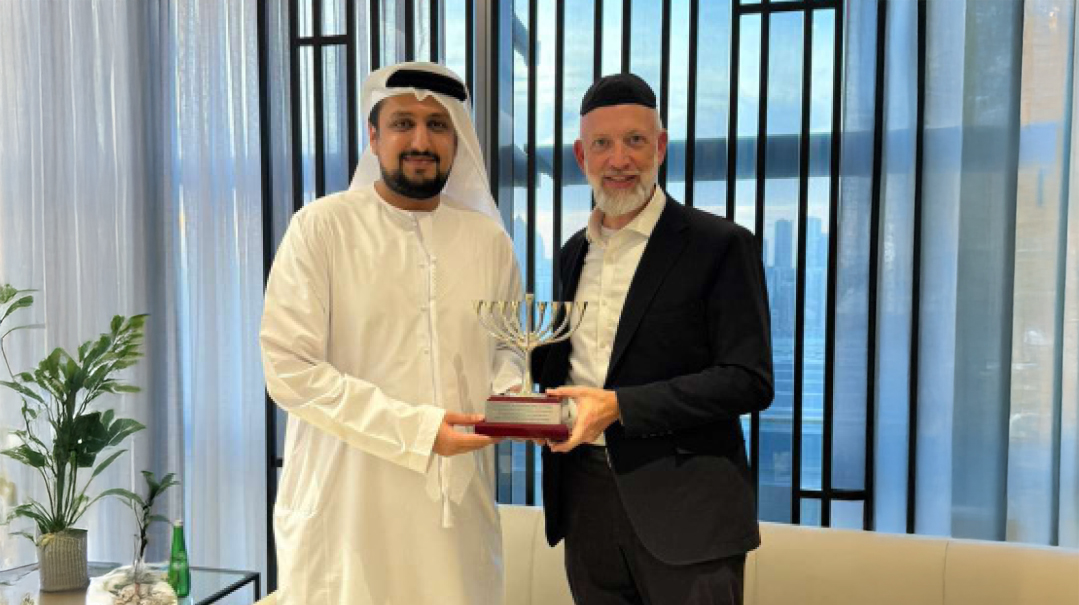Tone-Deaf

Somehow, despite the cries for equality and equal treatment, people seem to know righteousness when they see it
"So what are we going to do about this?” she asked.
“This” was an ad for a fundraising concert later this month to benefit Ezra Lemarpe, a medical advocacy and assistance organization founded by Rabbi Elimelech Firer. With its venue in cosmopolitan Tel Aviv, its lineup featuring a wide array of popular Israeli singers and the Israel Philharmonic Orchestra, and with President Rivlin in attendance, the event was clearly targeting the secular public.
Yet one thing was conspicuously missing. Female singers. And so a founder of a female “influencers” forum posted the ad in her online community to enlist her followers against the event.
It was clear that she knew nothing of Rabbi Firer. She must have missed the memo that this Belzer chassid has made it his life purpose to assist people navigating the medical system, gratis, providing up-to-date advice about the best doctors and the latest treatments. When my mother-in-law had a stroke, the question we heard most often was, “Have you called Rabbi Firer?” His organization, Ezra Lemarpe, runs numerous rehabilitation facilities, supports families of individuals with chronic illnesses, lends medical equipment, and flies patients overseas for medical care when necessary.
Unfortunately, I didn’t need an introduction. Fifteen years ago, at the age of 29, just two weeks postpartum, I was diagnosed with a lung tumor. Recuperating with four small children at home while facing the prospects of losing half a lung was challenging enough. But then our health fund refused to cover the PT scan I needed before surgery. We contacted every kind of connection, but nobody could help. Finally, someone had the bright idea of putting us in touch with Rabbi Firer. Three days later, I had an appointment for the scan with the top professor at a private hospital, all expenses paid. (Baruch Hashem, I am fine now.)
This is but one little story out of the hundreds that pass through Rabbi Firer’s office every day for the past 40 years. Hundreds of thousands of lives of every stripe and color — men and women, observant and secular. No questions asked.
Yet for today’s ultra-feminist activists, all of these merits, including saving the lives of countless women, pale against the cardinal sin in western society of 2019 — excluding women.
In the past two years, women’s rights organizations in Israel have launched a full-court press on gender segregation and events without female participation in municipalities, government agencies, and private organizations. Multiple lawsuits have been filed against separate-seating concerts for the chareidi public in cities like Tel Aviv, Afula, and Haifa. Gender-segregated academic programs, meant to enable more chareidim to join the workforce, have been challenged in courts. Army rabbis and officers have been accused of imposing a “modesty code” on female soldiers, while religious soldiers have been terrorized for refusing to listen to female singers or be trained by female sports coaches. The Supreme Court has ruled to close down the separate-swimming-only pool in Kiryat Arba. And in a stunning stroke of overreach, the Ministry of Social Welfare, which oversees thousands of chareidi daycare programs, as well as hundreds of chareidi social welfare nonprofits, has issued a blanket prohibition against any form of gender segregation at all events it sponsors.
Lest you think the same pressure has been applied to the Arab community or that feminist activists have stopped running women-only events, you are wrong. All of the efforts to “reeducate” the Israeli public have focused on villainizing the “misogynist” chareidim.
Herein lies the hypocrisy of this effort. Even as ultra-feminist leaders accuse the chareidi community of treating women as second-class citizens, they ignore the very real injustices against women in secular society.
The campaign against Rabbi Firer’s concert was made public by a journalist whose entire career consists of sharing unsavory gossip and materials degrading women’s dignity. Somehow, in his mind and in the minds of his viewers, promoting routine objectification of women on magazine covers and in mass entertainment jibed with defending “women’s rights.” Even as he peddles wholesale immorality, he can concomitantly champion the secular code of equality ethic.
The moralizing tone of the feminist campaign reminded me of two stories of hypocrisy recounted by Chazal. The Gemara tells us that as soon as Lot moved into Sodom, he was appointed to serve as a judge and enforce Sodom’s strict “morality” of not giving a penny to the stranger. If that meant terrorizing visitors or subjecting a little girl to a cruel and unusual punishment for feeding a beggar, so be it.
In a different passage, Roman mass murderer Turnus Rufus sets up an ideological trap for Rabi Akiva, asking him whose deeds are greater, man’s or G-d’s. His true intention was to entrap Rabi Akiva and criticize bris milah as “tinkering with G-d’s handiwork.” It is breathtaking to observe the incredible hypocrisy of a man who butchered thousands, now chiding the Jews for performing bris milah under the guise of piety.
It is just as breathtaking to witness the hypocrisy of a society that has objectified women to sell everything from cars to beer to newspapers, now crying out to protect women’s rights to sing at a concert.
It is astonishing to observe the attack on the chareidi community for the exclusion of women at a time when only one (!) out of Israel’s 125 largest companies is led by a female CEO (down from four a year ago). And what of the vaunted halls of Israel’s high-tech industry? Here women were found worthy of only 2% of Venture Capital funding.
It is astounding to watch the hypocrisy of activists citing pluralism, liberal values, and civil rights in order to deny one million chareidim, including half-a-million chareidi women, the right to gain education, engage in sports, and enjoy entertainment events in an environment reflecting this community’s standards.
It is quite clear that it is neither the plight of female singers, nor the rights of chareidi women (and, it may be said, not even the distaste of seeing a Belzer chassid honored at the bastion of secular culture) that motivates the activists. Over 40 years ago, the Lubavitcher Rebbe predicted that women’s rights would become the biggest challenge for the frum community in the next century. And so in today’s Israel: from Women of the Wall, to women in IDF combat units, to separate-seating concerts, women’s rights have become the most convenient battle cry for anyone wishing to discredit the frum community and the Torah way of life.
The real victims of the anti-chareidi campaign are, of course, the very women whom the feminist organizations are supposed to serve. Fighting the frum community comes at the expense of addressing legitimate women’s issues, such as closing the gender wage gap, advancing business opportunities for women, and alleviating the pressures of the work-life balance to enable more women to thrive in the workforce.
Judging by the current state of affairs, women’s rights will remain at the forefront of the onslaught on the observant community, and by extension, the Jewish character of the State of Israel.
No matter what the fate of his benefit concert in Tel Aviv, there’s no question that Rabbi Firer will emerge triumphant. His life has been a shining beacon of lofty Torah values, and even people far removed from the Torah have come out in his defense. Somehow, despite the cries for equality and equal treatment, people seem to know righteousness when they see it — and to identify a tone-deaf message when they hear it.
Leah Aharoni is the Founder/CEO of SHEvuk Business Consulting and the Founder of Women for the Wall, a grassroots women’s organization dedicated to preserving the sanctity of the Kosel in the spirit of Jewish unity.
(Originally featured in Mishpacha, Issue 784)
Oops! We could not locate your form.







